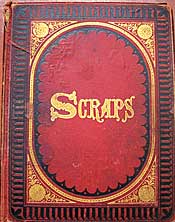Web interactivity
Detectives project seeks viewer-sleuths armed with laptops
History Detectives has always relied on its fans to provide artifacts that its scholarly sleuths can plunder for their historic value. Now the show plans to give back puzzles for viewers to solve.
Just before its sixth-season debut June 30 [2008], the series will launch an online feature inviting users to help uncover the histories of various artifacts.
The so-called Web Investigations aim to use online crowd-sourcing to replicate the research and verification format of History Detectives, a co-production of Lion Television and Oregon Public Broadcasting.
The series’ 13-week season will include two investigations, each lasting seven weeks and focusing on a single item provided by a user. Online producers and some of the show’s sleuths will give participants specific “detective tasks” to perform and, via e-mails and RSS feeds, update participants on the study’s status as users report on their progress.
A team of three producers will run the project on the History Detectives site (pbs.org/historydetectives). Funding will come out of the show’s $75,000 online budget.
The idea is to use online interactivity to build even deeper connections with fans of the established series by letting them experience the show for themselves, says John Kin, e.p. for OPB Interactive.
Other pubTV shows have used similar setups, such as Nova'’s interactive Car of the Future site and games offered by various kids at PBSkids.org. Using the website of its invasive-species special, The Silent Invasion, OPB enlisted citizens to identify and report potentially harmful non-native plants and animals to state authorities.
For the first season of the History Detectives project, producers plan to keep things simple and experimental, Kin says.
“If we can just get the thing up and get some new engagement with people, we will learn a lot and tweak it, going forward,” he says. “We have to throw it out there and then be light enough on our feet to adapt.”
The first artifact will be a Wild West scrapbook believed to have belonged to Giuseppina Morlacchi, an Italian dancer and spouse of famous frontiersman Texas Jack Omohundro who supposedly introduced the can-can to America. Users will be asked to determine whether the book actually belonged to the couple and whether he or she made it, among other questions.
“We originally thought about just saying, ‘Here’s an object, help us out,’” Kin says. The team may try that in the future, he says, but they decided not to take a chance that the mystery couldn’t be solved. They already know the answers—and found that some of the detective tasks can be achieved with little more than a simple web search.
“We may get surprise details that we may never have found on our own — that would be the ultimate,” Kin says. “But we wanted to hedge our bets so we would have interesting features.”
A major inspiration for the Web Investigations is Assignment Zero (zero.newassignment.net), an online crowd-sourcing experiment conceived by Jay Rosen, a New York University professor and citizen-journalism advocate.
Aside from occasional feedback from the producers and show personalities, the Web Investigators will be mostly on their own, Kin says. The producers plan to reach out to museums, fan clubs and other groups that have an interest in Wild West history in order to “prime the pump” for the scrapbook investigation, he says.
Future investigations may ask home gumshoes to send in video evidence as PBS.org builds out its capability for handling multimedia submissions, Kin says.
Web page posted May 27, 2008
Copyright 2008 by Current LLC
